#western herbalism
Explore tagged Tumblr posts
Text
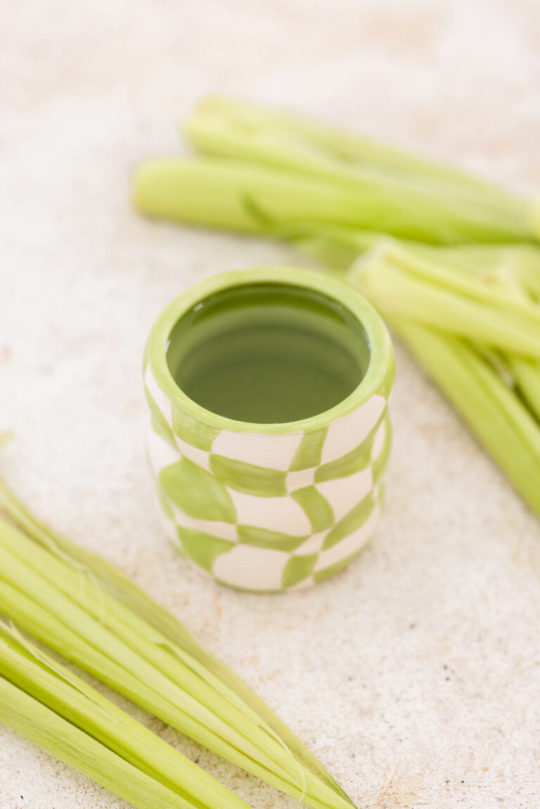
Corn Silk Tea
It’s an herbal tea made from the silky strands of the corn plant and is known for its slightly sweet, mild taste. People use the tea for its diuretic, kidney-supporting, blood sugar-regulating, antioxidant, anti-inflammatory, and digestive-support properties
#p#herbarium#herbal tea#corn silk tea#herbalism#corn#Zea mays#tcm#traditional chinese medicine#western herbalism#food centric herbalism#veggiekins#sidewalkchemistry
32 notes
·
View notes
Text
Grocery Store Fire Cider
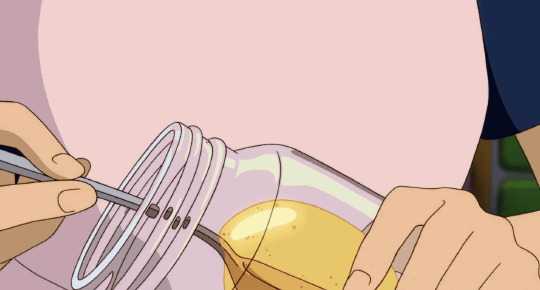
I try to always have fire cider on hand during the colder months. Fire cider is vinegar infused with warming, expectorant (mucus-clearing) herbs to help clear out gunk from our respiratory system. It's great for clearing up congestion and helping with wet coughs. Since pretty much everyone in my house tends towards wet cold symptoms (congestion/runny nose, coughing up mucus, etc.), we go through a lot of this stuff every cold and flu season.
I take a shot of fire cider as soon as I feel congestion or a wet cough coming on, or if I've been around someone I know is sick. While it doesn't always keep me from getting sick, I do think it helps speed up my recovery and keep my symptoms less severe.
A lot of fire cider recipes online and in herbalism books call for less common herbs that need to be purchased online or from a speciality herb shop. This year, I decided to make a batch with only herbs you can buy cheaply at most grocery stores. Here's the recipe for my fellow herbalists on a budget!
You will need:
A quart mason jar
1 whole head of fresh garlic, peeled and roughly chopped, OR 3 spoonfuls of pre-minced jarred garlic
3 knobs of fresh ginger about the size of your thumb, roughly chopped, OR 3 spoonfuls of store-bought ginger paste
1 package fresh thyme OR 2 tablespoons dried thyme
1 package fresh sage OR 2 tablespoons dried sage
1 quart apple cider vinegar
There are two methods I've used to make this cider. The traditional method is a slow infusion that takes 2+ weeks, but I've also developed a fast infusion method for when I feel a cold coming on and need a batch of fire cider ASAP.
Traditional Method:
Add your herbs to a clean mason jar. Pour the vinegar over the herbs and fill the jar to the top. Put a lid on the jar. (Vinegar will corrode metal lids, so either use a plastic lid or place a square of parchment paper between your jar and the metal lid.)
Place the jar in a cool, dark place and allow it to infuse for at least 2 weeks and up to 1 month. You can strain the herbs out to store at room temperature, or you can do what I do and store the whole thing in the fridge, herbs and all.
If you leave the herbs in, you can keep this batch of fire cider going all winter by topping the jar up with more vinegar every time it gets below halfway full.
Fast Infusion Method:
Add the herbs to the mason jar like you would for the traditional method. Instead of adding vinegar, fill the jar halfway with boiling water. Let sit for 2-3 hours.
Once the water has cooled down to room temperature, fill the jar the rest of the way with vinegar. Let it sit overnight and then either strain the herbs out or store the whole thing in the fridge.
To use the fire cider, take a shot glassful whenever you feel cold symptoms coming on. If you made your cider with the traditional method, you can dilute it with water if your stomach doesn't handle acid well. You can also mix in some honey to improve the taste.
Please note that fire cider and other folk remedies are not a replacement for medical care. I highly recommend staying up to date on your flu and COVID-19 vaccines in addition to using remedies like this.
#fire cider#herbal remedy#herbalism#traditional western herbalism#kitchen witch#kitchen witchery#kitchen witchcraft#green witch#green witchcraft#green witchery#budget herbalism#budget witchcraft#witchblr#mine#recipes
554 notes
·
View notes
Text

Home sick today, so I brought out the western teapot to have a herbal blend within reach.
#teablr#teatime#herbal tea#I don’t bring out this teapot very often since I don’t usually want a whole pot full when I western brew
12 notes
·
View notes
Text
Daniel A. Schulke. Thirteen Pathways of Occult Herbalism and Other Homilies on Botanical Magic. Three Hands Press, 2017. Hardcover edition bound in green cloth with color dust jacket. 138 pages. Limited to 1200 copies. Illustrations by Benjamin A. Vierling.
Shop link in bio.
instagram
#occult#bookseller#magic#esotericism#occult books#occultism#western esotericism#herbalism#plant magic#Instagram
12 notes
·
View notes
Text

Doing a western brew.
Friend went to DC and brought me back this herbal blend.

I tried to contain the rooibos but I was unsuccessful.
Good tea though 😋
#tea#tea addict#tea is good#tea is life#tea time#tea drinker#tea tea tea#tea lover#tea life#western tea#tea ware#tea pot#tea things#tea infuser#tea for one#tea blends#tea my beloved#herbal#herbal tea#tisane#rooibos tea
3 notes
·
View notes
Text
The answer to the second question is no, not to the point that they can't just do stuff. Even for victims of capitalism in poverty with children to take care of and mounds of debt to pay, abled or disabled, they still "just do stuff."
Life is incredibly hard right now and for a lot of people, I'm not suggesting the opposite, and a symptom of that can be this overwhelming inability to just not do stuff whether that's major depression, anxiety, chronic fatigue, or other malady, but its not "normal" in the sense that you should just accept this is how you feel now and resolve to do nothing about it. It's a serious symptom, a sign that you're not well, and you should actively seek help or treatment. And seeking help or treatment isn't easily accessible for everyone, either, I know that, even despite the breadth of information on how to ease the burden of receiving treatment you can find online. But it is important to me that if you're struggling like this that you at least acknowledge it isn't just something you need to endure until it stops. It doesn't stop, and how you feel isn't because you're too weak for the rigors life: you need to take it seriously and seek help as best as you can.

#it is important to me because my wife won't seek meaningful help#for over 4 years she has resisted doing more than taking herbal supplements#and we CAN afford treatment‚ she just won't accept it#one time she accepted therapy and cried privately because it was such a victory towards progress#but that therapist ultimately didn't work out and she didn't really take anything away from it#practically no one ever gets their best therapist on the first or even the second try and she has refused trying again#she will not take any western anti-depressants#she won't even smoke or consume something like marijuana#she doesn't have a typical job so dealing with the threat of getting fired and not being able to pay bills is not a stressor#we do not argue or fight‚ she has no performative expectations—#—she has major depression + high anxiety‚ I take that seriously#anyway. don't be like her. even if‚ like her‚ you can afford to be#seek help‚ seek treatment. and hey‚ take supplements like ashwaganda and valerian root first if you'd better doing that#but if after an extended period of time it still doesn't help then try something else. please.#(4th tag was supposed to say 'i cried privately')
199K notes
·
View notes
Text
Western Herbal and Nutrition, Inc.

At Western Herbal and Nutrition, Inc., our dedication lies in being your trusted source for herbal and nutritional supplements, coupled with prompt delivery and attentive customer care. Renowned in the industry, we have garnered respect from doctors, chiropractors, and natural practitioners alike, thanks to our products tailored to meet your unique health and nutrition requirements. Rest assured, our products are 100% natural and manufactured in the USA, adhering to stringent GMP certifications. We typically ship all products the same day (Monday-Friday) if the order is placed before 3 pm PST. Moreover, we offer complimentary shipping on all U.S. orders over $100, ensuring your satisfaction with every purchase. Providing people with the highest level of support in addressing their health problems is the basis of why we started this endeavor. Our dedicated and trained staff are happy to assist you with any questions you may have. Feel free to call 800-223-3036 or email [email protected] for further queries.
1 note
·
View note
Note
pat pat
thank u :(
0 notes
Text
The Chinese miracle of Wan Hua Oil...
I know nothing about medicine. I know nothing about medical matters, but… Back in the mists of 1991, I got hit by a large – a very large – articulated truck. I was standing on the pavement at a corner; the truck turned the corner. I was hit by the edge of the corner of the trailer suddenly protruding beyond the width of the driver’s cab. My collar bone was broken – I was told the medical word…
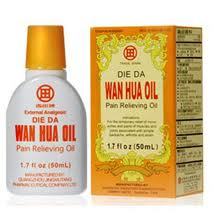
View On WordPress
0 notes
Text
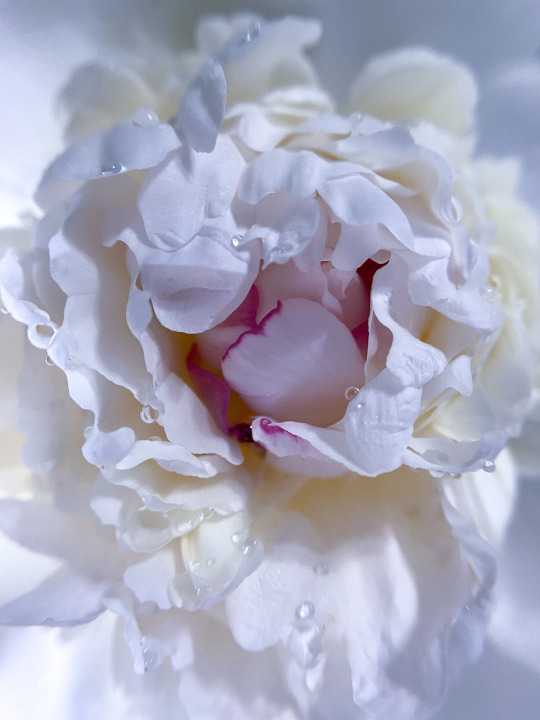

Bai Shao - White Peony Root - Paeonia lactiflora
Anti-bacterial
Analgesic
Anti-inflammatory
Hepatoprotective
Immunostimulant
Sedative and hypnotic
Vasodilator
White Peony - is mostly known in the west for the lush, full and abundant flowers that bloom early spring. It is said that the ancient Greek healer Paeos used the roots of the white flowering peony to heal the gods injured during the Trojan wars. Thus, the peony was named after Paeon, the Greek physician of the gods, indicating the high regard in which it is held. Bai Shao is the perfect spring herb! It has a bitter sour flavor and is cooling in nature. It is beneficial to liver, qi, and blood. In Chinese herbal medicine it is a root that is dried and used in medicinal teas, soups, tinctures. It is always used in conjunction with other herbs: along with licorice, white peony is the other ingredient in well known Chinese herbal formula shao yao gan cao tang, used to relieve muscle cramping and spasm. Dried withe peony root is available through reliable suppliers of chinese herbs. In China Bai Shao has been used in the treatment of rheumatoid arthritis, systemic lupus, erythematosus, hepatitis, dysmenorrhea, muscle cramping and spasms, and fever for more than 1,200 years.
INDICATIONS:
Menstrual dysfunction, vaginal discharge, and uterine bleeding; lusterless complexion, and dull, lusterless nails
Flank, chest, or abdominal pain; stop painful spasms in the abdomen, stop cramping pain or spasms in the hands and feet, headache, dizziness
Spontaneous sweating, vaginal discharge and spermatorrhea; exterior wind - cold
#p#txt#herbarium#white peony#peony#Paeonia lactiflora#herbalism#traditional chinese medicine#folk medicine#western herbalism#bai shao#sidewalkchemistry
4 notes
·
View notes
Text
Demystifying Liver Qi Stagnation
Overlapping Western Diagnoses, Symptoms, Herbal Solutions, Exercises, and Food Recommendation In Traditional Chinese Medicine (TCM), the concept of Liver Qi stagnation plays a significant role in understanding and treating various health conditions. The Liver, according to TCM, is responsible for the smooth flow of Qi (vital energy) throughout the body. When this flow becomes stagnant, it can…
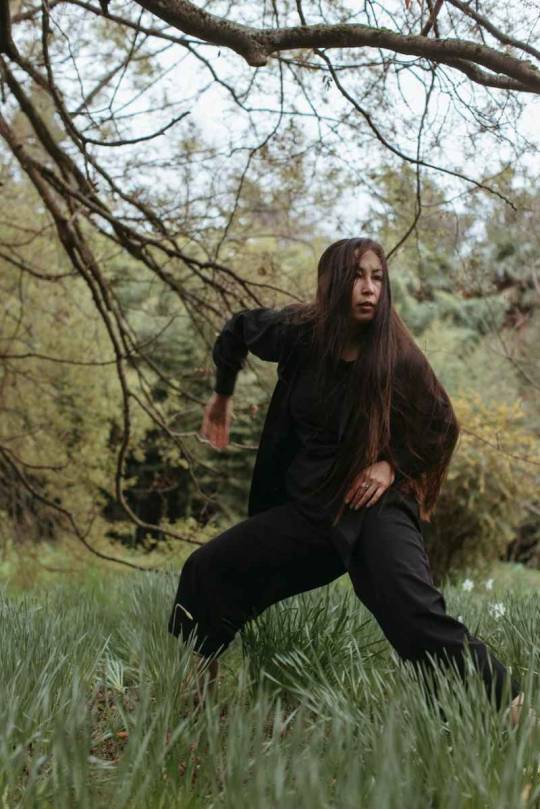
View On WordPress
#Acupuncture#annabackacupuncture#Dietary recommendations#Emotional well-being#Exercise for Liver Qi stagnation#herbal remedies#herbs#Holistic health#integrative medicine#Liver Qi stagnation#malibu#ogden#pain#san pedro#south shores#Symptoms of Liver Qi stagnation#Traditional Chinese Medicine (TCM)#wellness#Western medical overlaps
0 notes
Text
This series is now complete and I can finally know peace now that it is no longer in my head or the drafts. I hope you all enjoyed it, and if it’s on your tbr, let me know what you think when you’re able. 💗
seer. wise woman. witch.
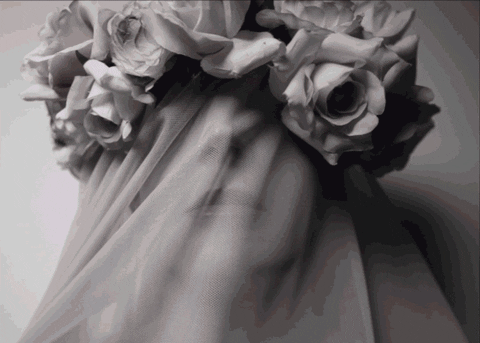
This series builds on previous witch posts, including Secret, lovely seer witch and Passing the mantle. There are hints from the beginning that all three sisters are witches, but this series focuses primarily on Elain's connections to witches. All of these posts are situated in the Maasverse and have spoilers for all three series, so please proceed with caution.
-1- Lovely monster
-2- Seed of power
-3- Herbs she planted
-4- The Ancients
-5- Song of the wind
-6- The sense chanted
-7- Groundings
More theories, connections, and headcanons about the middle Archeron sister here.
#complete for now#witch elain#seer witch#lovely monsters#shape-shifting witch#herbal magic#witch mirrors#past present and future bleed together#song of the wind#witchy western wind#chants and rituals#Elain’s dawn ritual#communing with the Mother#groundings
114 notes
·
View notes
Text
Secrets to the Arabian Princess Scent 💐🧴🪷
So with Arab perfumes becoming popular in the West due to their strong projection and beautiful smell, and the Arab world becoming known for our knowledge on how to smell good af, I (a half Moroccan) am going to reveal some other ways we ensure we smell amazing to the girlies on Tumblr who are interested in Arab perfumes or just in generally smelling amazing 😍 Most tips are Moroccan but many apply to the Arab world in general (under the cut because this turned into a long post) ✨💞💐
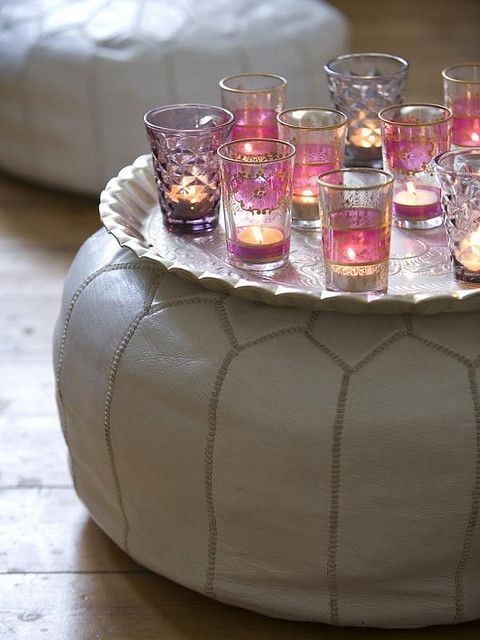


1) Good Eating Habits: When my mother moved here to Europe, she was immediately struck by how the people seemed to smell like "pig." And that's no coincidence. You are what you eat, so coming from a country where nobody eats pig to one where everyone eats it, of course you're going to be struck by people smelling like it from the inside out. Not just that, but in the Arab world, it's also way less common for people to eat takeout and drink alcohol, whereas in many parts of the West, these things are a normal part of many people's diets and affects their natural scent. A lot of Arabs have also talked about how Westerners smell like "milk," and this is because Westerners tend to consume more dairy products than people in the East do. It's also common for Arabs to eat fruit as dessert instead of having cakes or cookies all the time (although speaking of cookies and cakes, the scents of rosewater, orange blossom water, almonds, honey, vanilla, oranges and lemons commonly used in Arab baking fill up the house with a wonderful smell while they're baking). Teas made from various herbal infusions are popular throughout the Arab world. Spearmint, peppermint, sage, cardamom, cinnamon, hibiscus, chamomile, anise, and thyme are commonly used to flavor tea in MENA. Dried lime tea is drunk in the Arabian Peninsula. Coffee flavoured with cardamom is also common. I especially like Turkish coffee. Spices like cinnamon, cardamom, and cloves are commonly used in cooking, and the scent of them can cling to your clothes and hair. Herbs like mint and parsley, which have natural deodorising properties, are often used in meals.
I'm not saying that you need to cut any foods out in order to smell good, but you should consider reducing the amounts of unhealthy foods and red meats you eat, and make sure to drink plenty of water and eat veggies and fruit daily.
2) Keeping a Clean House: Here in Ireland, a lot of people don't clean their houses every day. I know multiple people that only clean their floor once a week, and have a couple of neighbours who don't do much cleaning themselves and just have a housekeeper visit to clean once a week. But in Morocco, people clean daily. The home is also deep cleaned once a week, we even wash the walls. We don't wear shoes inside, and not just that, but we also have different slippers specifically for wearing inside the bathroom. Living in a clean space is important for smelling good, because no matter what you do, you'll always end up smelling like wherever you live due to spending so much time there. The scent will cling to your clothes and hair. Which means if your house smells dirty, you will also smell dirty.
As well as making sure the house is clean, Arabs also make it smell pretty with extras. For example, in Morocco it's common to burn incense or bakhour (perfumed wood chips), and the scent permeates your clothes. People also keep pieces of musk in their wardrobes (wrapped in a handkerchief). It come in scents like orange blossom, jasmine, amber, sandalwood, chamomile and lavender. An unused bar of soap or a sachet of potpourri in your wardrobe will do the same job though if you can't or don't want to buy musk. The musk can also be used as a scented wax melt, a home scent (you just leave it in a bowl), a body perfume (rub it on your skin), a hair perfume (rub on your palms and run through the hair), or to scent bathwater. Solid perfume made from natural ingredients has the same effect. I like Lush Rose Jam solid perfume, as it smells like sweet roses and Turkish delight, and a little goes a long way.
Specific to Marrakech, you can buy jasmine balls which you just leave around the house (if you're not in Marrakech, you can just leave potpourri or dried flowers and herbs in sachets on your desk, bedside table, etc). The Marrakech herbal shops also sell sandalwood bark which you burn. Oud and amber are also burned. Herbs like lavender are sprinkled under carpets and rugs so the scent rises as they're stepped on. Room sprays from brands like Nabeel are used, which come in a range of lovely scents (like the warm vanilla and oud Kanz or the rich floral Raunaq).
3) Personal Hygiene: In the Arab world, people shower daily. In Morocco, we also go to the hammam (public bath) once a week, and we sit in the sauna room, and then rub our bodies with sabon beldi (black soap), a natural soap made from olive oil and black olives, leaving it on for a few minutes before rinsing it off. Then we scrub our skin with a kessa glove after it's marinated. Exfoliating dead skin regularly makes perfume cling to you better (if you order Korean bath towels from Amazon, they're very similar to Moroccan kessa gloves and you use them in a similar way). Then after washing our hair, we use a ghassoul clay mask (some people also rub henna into their skin). After washing the clay off, many people rub rosewater or argan oil into their skin before heading to the relaxation area to enjoy refreshments. As well as helping us smell good, it also makes our skin incomparably soft. When my parents were newlyweds, my father remarked on how he'd never felt a woman with such soft skin in his life before. My mother attributes it to regularly using the hammams before moving here.
Obviously not everyone has access to a hammam, but you can create a similar experience at home. Just sit in a steamy hot shower for 10-15 minutes, wash your skin with a natural soap and leave it on for a few minutes before rinsing off and exfoliating with a glove. Then tone with rosewater and apply oil to your body.
Dukhan treatments (smoke baths) are practiced in Sudan. Married women and brides anoint themselves with oil, before sitting over a chair with a hole in the centre. Under the seat, there is a pit, in which acacia wood, frankincense, or other aromatic woods and resins are burned in a clay vessel.
As well as showering daily (and using the hammam regularly if you're Maghrebi), many people in the Arab world also perform wudu (ritual cleansing) five times a day before praying.
Women commonly apply Musk Al Tahara (white musk), an attar that smells like vanilla, flowers and soft musk on the external parts of their vulva after periods.
Alum was commonly used as a natural deodorant in the Arab world in the past, and some still use it today.
Bidets are also common in the Arab world. In the Anglosphere they're uncommon, but it's easy to get a portable bidet (a small squeezable bottle with a nozzle) online.
We also wash our hands before meals, with a pitcher of water which is passed around the room. In Turkey, they use kolonya, made from fig blossoms, jasmine, rose, or citrus to disinfect their hands. In Morocco, it's common for women to scent their hands with rosewater or orange blossom water after meals.
4) Fragrances, Lotions and Potions: In the Arab world, perfumes are incredible. They're oil-based, so they have excellent projection and longevity. The olfactory notes commonly used in them are beautiful too: delicate rosewater and orange blossom water, exotic oud, sweet amber, vibrant roses and jasmine. In Morocco, gardenia scents are popular, even among men.
Emirati perfumes are the most well known in the West and are super good. Some personal favourites of mine include Oud Mood by Lattafa (Caramel, rose, saffron, and oud), Fatima Pink by Zimaya (Sweet rose that smells like a bit like Turkish delight. it's a dupe of the French Parfums De Marly Delina, however, the actual Delina smells very similar to generic rose oil perfumes you can get in the Arab world to begin with so Zimaya was basically able to dupe it to a T. Their version lasts really long too), Ameerat Al Arab by Lattafa (jasmine, a hint of oud, slightly citrusy. Also the name means "Arabian Princess" in English), Fakhar Rose by Lattafa (sweet, fruity, and very floral) and Yara by Lattafa (floral, amber, vanilla and strawberry). I buy my perfumes from Dubai Perfume Shop in Dublin, but they can be easily found online. Some well-known Arab perfume houses include Lattafa, Al Rehab, Zimaya, Al Qurashi, Amouage, Afnan, Ajmal, Asdaaf, Al Haramain, Armaf, Kayali, Maison Alhambra, and Swiss Arabian, but there are hundreds more.
As well as sprayable perfume, perfume oil is also used. It usually comes in rollerballs or small containers, is inexpensive, and lasts for ages. Like spray perfume, it comes in a huge variety of scents. You can also put it in diffusers or add some to cotton balls and leave in your wardrobe to scent clothes and linens.
Arabs know when to wear perfumes. For example, a rich, sweet, strong oud and vanilla scent will be beautiful in colder weather. But in warm weather, it will become cloying and sickly. Musk, amber and saffron are popular in winter, while rose, orange blossom and jasmine are popular in summer.
In the Arab world, many stalls in the Medina sell gorgeous oils, fragrances and soaps that are inexpensive. For example, the musk I mentioned above. As well as making your home smell incredible, you can also rub it on your body and you'll smell good for days.
Rosewater is commonly used as a toner and to remove makeup. In the town of Skoura, where my great grandparents were from, men even use it to shave with! Orange blossom water is also used in Arab beauty routines in a similar way to rosewater. You can apply either to a bath for extra luxury.
Argan oil is commonly used in Morocco on both skin and hair, as well as the less well-known but just as good prickly pear oil (which is very high in vitamin E). Pure argan oil actually smells mild and not fragrant (similar to olive oil), but for beauty, things like rose oil and menthol are commonly added, so it smells pretty good. Throughout the Middle East and North Africa, jasmine hair oil, castor oil and sweet almond oil (I like putting it in my baths and on my body) are easy to find. Usually Middle Eastern and South Asian shops in the West sell them too.
Honey and almond masks have been used since ancient times, and to this day are still popular. You can buy them basically anywhere. Homemade face masks made from honey and yoghurt or crushed figs and yoghurt are also used.
Aloe Vera is used to treat dry skin, acne, and sunburns. It has a cool and refreshing scent, perfect for the hot climate in many parts of the Arabian world. I like applying it after shaving as it's soothing, natural, and absorbs easily.
Frankincense, a resin used in the Middle East and North Africa for thousands of years, was traditionally used as a natural perfume. It's commonly used in incense. Frankincense oil is also good for the skin.
There are many beautiful scented soaps available in the Arab world. If you go to Turkish or Arab supermarkets, a lot of them will have a section where they sell hygiene products, including soaps with ingredients like argan, rose and oud, and olive oil. I've even found Syrian Aleppo soap before. You can just buy soaps from regular stores in scents like rose, jasmine, honey and almond, orange blossom and sandalwood for achieving that exotic scent though.
As well as using various oils, perfumes, and fragrant beauty treatments, Arab women also know how to layer these different scents to add dimension to them and avoid clashing. For example, a rose perfume over a vanilla lotion will always smell good. Other combinations that are good include almond and vanilla, rose and oud, rose and jasmine, lavender and lemon, rose and orange blossom, and orange blossom and vanilla. But there are many different combinations you can use to achieve a delicious scent that's unique to you.
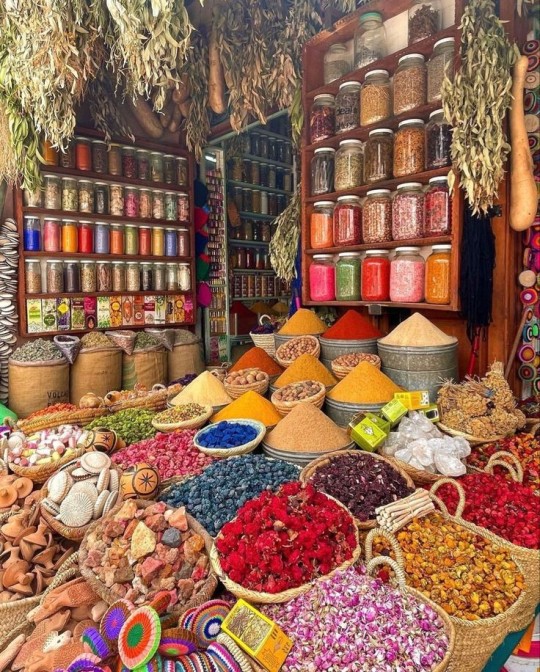

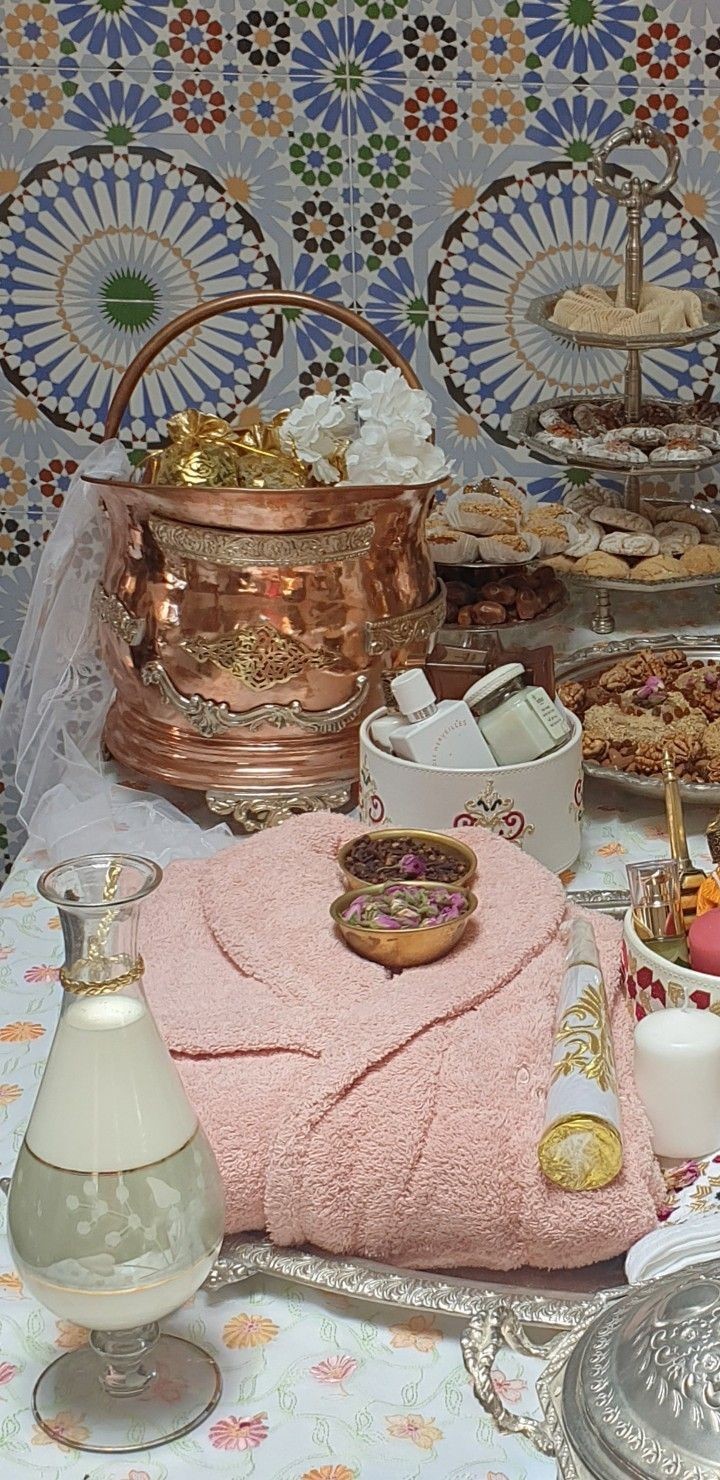
I hope this was helpful, stay pretty ✨
#law of attraction#becoming that girl#clean girl#it girl#dream girl#girlblogging#dream girl journey#glow up tips#glow up#dream girl tips#dream life#wonyongism#pink pilates girl#pink pilates princess#it girl energy#girly tumblr#just girly things#just girly thoughts#just girly posts#pink blog#hyperfeminine#girly#princess life#princesscore#masterpost#levelling up journey#level up#hypergamy#high maintenance#high value woman
699 notes
·
View notes
Text

Wasn’t super fond of either of these herbal bags, but together and sweetened with this monk fruit the taste reminds me of an apple cider.
#tisane#herbal#tea#yogi tea#western tea#tea recipe#kinda#tea blends#tea tea tea#tea time#any tea any where#10/10 would tisane again#tea is good#tea is life#tea packaging#tea addict#tea drinker#tea flavors#tea for one#tea lover#tea life#tea break#tea bags#tea mug
1 note
·
View note
Text
Buck Moon - July 20-21, 2024
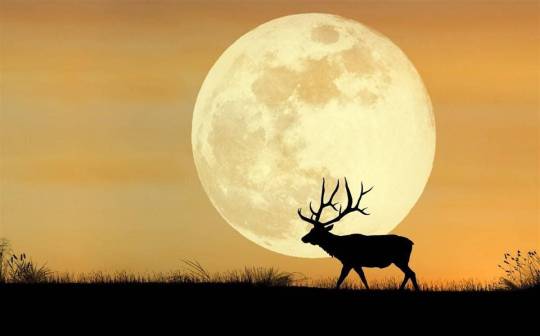
Put on your flower crowns and your walking shoes - it’s time for the Buck Moon!
Buck Moon 🦌
The Buck Moon is the name given to the full moon in the month of July and is called this because at this time of year, the rack of antlers previously shed by male deer are beginning to regrow and harden in preparation for the fall rutting season.
Other North American Indigenous names for this moon include Salmon Moon (Tlingit), Berry Moon (Anishinaabe), Month of the Ripe Corn Moon (Cherokee), and Raspberry Moon (Algonquin, Ojibwe). The West Abenaki also call this the Thunder Moon in reference to the often-stormy summer weather. (This one is my personal favorite and the name appears in lunar calendars just as often as the Buck Moon.)
European names for the July moon include Hay Moon and Wort Moon, and it should be noted that the name Stag Moon does appear in some European sources as well.
This year's Buck Moon will be at peak illumination at 6:17am EST on July 21st, so the moon will appear to be full on both the 20th and 21st. Also, it's a weekend, so plan your festivities accordingly!
What Does It Mean For Witches? 🦌
The July full moon continues June’s template of planning for the future, this time with a focus on your passions and ambitions. Reflect on what you’ve accomplished so far this year and plan your next step.
Dream big and plan big, but don’t give in to reckless urgency. Summer (and capitalist grind culture) gives us the urge to Go Go Go. Despite all this, it’s important to take time to rest and recharge, lest we find ourselves burning out and losing our motivation.
What Witchy Things Can We Do? 🦌
Celebrate your victories and revel in the abundance of the summer season. If you’re inclined to do so, take a page from the deer and do a bit of prancing around a bonfire or your favorite flower arbor with some festive flowery headgear.
Go exploring! Find a local park or garden and take a stroll among the greenery, or use TV and the internet to explore and learn about faraway places. This is another opportune time to go and check out pick-your-own farms and farmers markets as well. Sharpen your foraging and plant identification skills while you’re out and about!
If you’re tending a garden, harvest some herbs and investigate what you can make with them. Whether it’s seasoning for meals, homemade botanical products, or just helpful spell ingredients, many herbs and flowers have a plethora of uses. As an exercise, select three plants growing in your yard or garden, research their magical correspondences and botanical properties, and try to think of as many ways as possible to use each one for witchcraft and for practical purposes. For extra credit, pick something native to your area that doesn't appear in the western magical canon and use its' physical, folkloric, and historical associations to create something new!
(Safety Note: Always clean and prepare home-harvested herbs properly before using them for kitchen, bath, or medical preparations. Always be sure to properly identify any wildcrafted or foraged plants. Always consult a doctor before trying an herbal treatment and take all allergies, medications, and pre-existing conditions into account. Please also note that while herbal treatments can be helpful, it can have negative interactions and side effects just like any other medication, and it is not meant to be a replacement for modern medical care.)
Apart from the usual full-moon festivities, I’ve always found this is an excellent time for weather-witching. Summer weather is notoriously fickle, but it is also highly malleable - one recalls that old American Southern epithet of, “If you don’t like the weather, wait five minutes.”
If you’re hoping to bring some rain to water your garden or break the back of a heat wave, this may be the time to do it. My personal favorite folk magic ritual for rain-calling involves going outside with a broom and a bucket of water, using the broom to scatter drops of water over your yard, and shouting up to the clouds, “SEE? IT’S NOT HARD!”
Make sure you take local weather patterns into account and try to draw on existing fronts and nearby precipitation to get the desired result. And keep in mind that with weather magic, less is more and one casting is enough. Asking for too much or asking too often can produce undesirable results. And if you manage to make it rain, be sure to collect some for moon water!
If you’re interested in weather-witching, I highly recommend checking out this masterpost by @stormbornwitch for a number of excellent articles and suggestions.
Happy Buck Moon, witches! 🌕🦌
Sources and Further Reading:
Bree’s Lunar Calendar Series
Bree’s Secular Celebrations Series
Witchcraft Exercise - Creating Correspondences
Buck Moon: Full Moon in July 2024, The Old Farmer's Almanac.
Buck Moon Bonanza: Embrace July’s Massive Energy!, The Peculiar Brunette.
Everyday Moon Magic: Spells & Rituals for Abundant Living, Dorothy Morrison.
(If you’re enjoying my content, please feel free to drop a little something in the tip jar or check out my published works on Amazon or in the Willow Wings Witch Shop. 😊)
#witchblr#witch community#witchcraft#full moon#moon magic#pagan#buck moon#thunder moon#lunar magic#lunar calendar
211 notes
·
View notes
Note
Do you have any tips or any meals for dealing with PMS? I know everyone is different but curious what you do.
The tough thing about PMS and also why I think it's so hard to get real help is cause your reproductive organs really really conduct a lot of the movement for your body and health so because it's all connected, you have to address it is a whole body issue from what I've experienced - which tends to be overwhelming if you don't have any experience with holistic medicine or traditional Chinese medicine perspectives in healing
For me, I've been taking an herbal tincture specifically for my endo and issues from Elix, they are a wild crafted herb modern Chinese medicine approach to traditional practices which is a little more accessible than trying to find an herbalist locally and it's helped a lot. They also are good about giving a LOT of information about how it works and understanding what to expect from the process since it's very very at its core different from western pharmaceuticals and the side effects and timeline you'd expect
The other thing that I need to work on myself but so believe makes a serious difference is eating and sleeping. Eating a nourishing breakfast like soup or congee is reaaaally important in the connection to your menstrual cycle symptoms and it's not about doing it only on your cycle but like all the time is what actually gives the pay off when pms actually rolls around! And sleeping a full night is not a replaceable thing in your health either - and for many years I never slept more than 6 hours because I had such an early shift and so much anxiety around it.
Lastly I'd say getting a proper natural dry brush for your body and like checking out some YouTube videos on how to brush for your lymphatic drainage and circulation along with regular ginger tea can do so much for your whole system and also genuinely relieves pain in a really helpful way for my pms even if it's not a cure all!
When it comes to pms I think the most important thing to do is to make those little lifestyles adjustments like making sure you work out and sleep and eat BEFORE you try more extreme routes cause there really is something to it!!!!!
43 notes
·
View notes